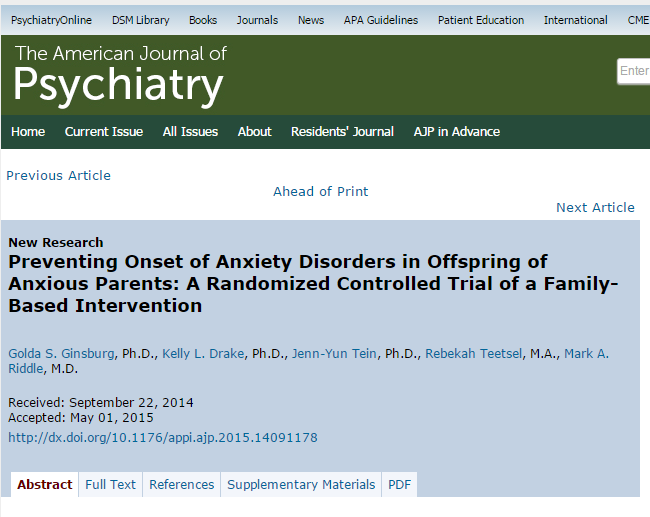UCONN Psychiatrist Golda Ginsburg recruited 136 families in which a parent had clinical anxiety but a child did not – not yet, anyway. Half the families were given therapy — a method to cope with early signs of worry. The other half were simply handed a brochure on anxiety. In the first group , only five percent of children developed clinical anxiety over a year. In the control group, 30 percent did. Ginsburg says she wants people to see anxiety the way they see other health challenges, and try to prevent it before it affects development.
“There are different models for prevention,” Ginsburg says, “you could sort of have a universal like fluoride in the water, or you can target your prevention to those at the greatest risk.”
Next, Ginsburg says she wants to figure out whether early intervention lasts. She’s just gotten funding to contact the same children, now teenagers and young adults, to see how many developed anxiety later on.
